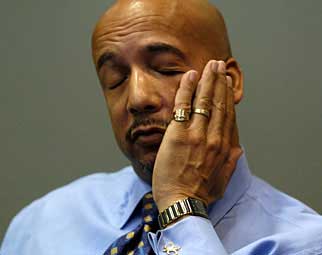Fact issue about bribery. Or is it? – UPDATED
April 16, 2019 The panel majority in Waste Management, Inc. v. River Birch, Inc.reversed a defense summary judgment in a civil RICO case, on the question whether an alleged bribe was the cause of an action by the disgraced former mayor Ray Nagin. The opinion detailed the circumstantial evidence both about the alleged bribe and its alleged effect, and found that a jury question had been presented: “Noting that It is rare in public bribery cases that there is definitive ‘smoking gun’ evidence to show a payment was made to an official to influence the official to perform some act—and there is no such evidence here. It is critical in cases such as this that inferences from circumstantial evidence about intent and motives about which reasonable minds could differ be sorted out by the jury.” (footnotes omitted). The dissent observed: “I don’t like granting summary judgment to campaign-finance violators. Nor do I like giving the benefit of the doubt to disgraced ex-government officials. But, in the absence of evidence, it’s what the law commands,” relying primarily on the Supreme Court’s Matsushita summary-judgment opinion. (Judge Davis wrote the majority opinion joined by Judge Costa; Judge Oldham dissented). A brief opinion on rehearing noted that the parties had not cited Matsushita so the court “therefore decline[s] to consider that case now.”
The panel majority in Waste Management, Inc. v. River Birch, Inc.reversed a defense summary judgment in a civil RICO case, on the question whether an alleged bribe was the cause of an action by the disgraced former mayor Ray Nagin. The opinion detailed the circumstantial evidence both about the alleged bribe and its alleged effect, and found that a jury question had been presented: “Noting that It is rare in public bribery cases that there is definitive ‘smoking gun’ evidence to show a payment was made to an official to influence the official to perform some act—and there is no such evidence here. It is critical in cases such as this that inferences from circumstantial evidence about intent and motives about which reasonable minds could differ be sorted out by the jury.” (footnotes omitted). The dissent observed: “I don’t like granting summary judgment to campaign-finance violators. Nor do I like giving the benefit of the doubt to disgraced ex-government officials. But, in the absence of evidence, it’s what the law commands,” relying primarily on the Supreme Court’s Matsushita summary-judgment opinion. (Judge Davis wrote the majority opinion joined by Judge Costa; Judge Oldham dissented). A brief opinion on rehearing noted that the parties had not cited Matsushita so the court “therefore decline[s] to consider that case now.”